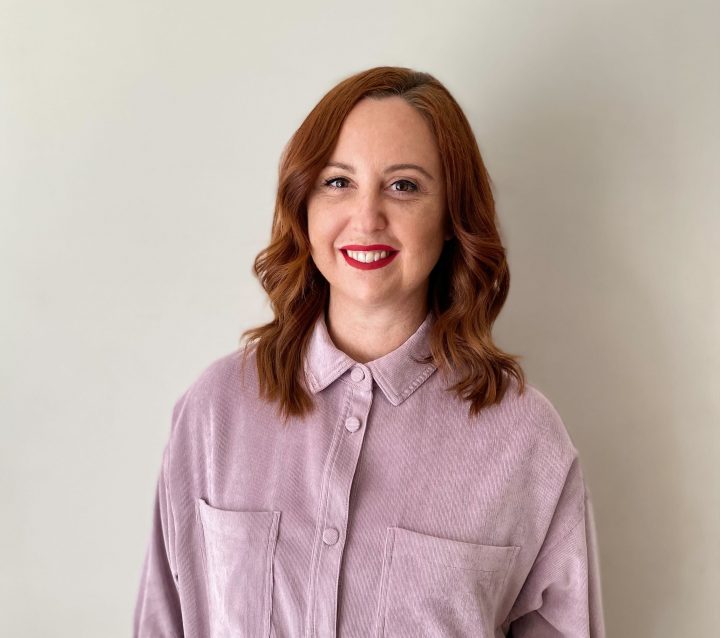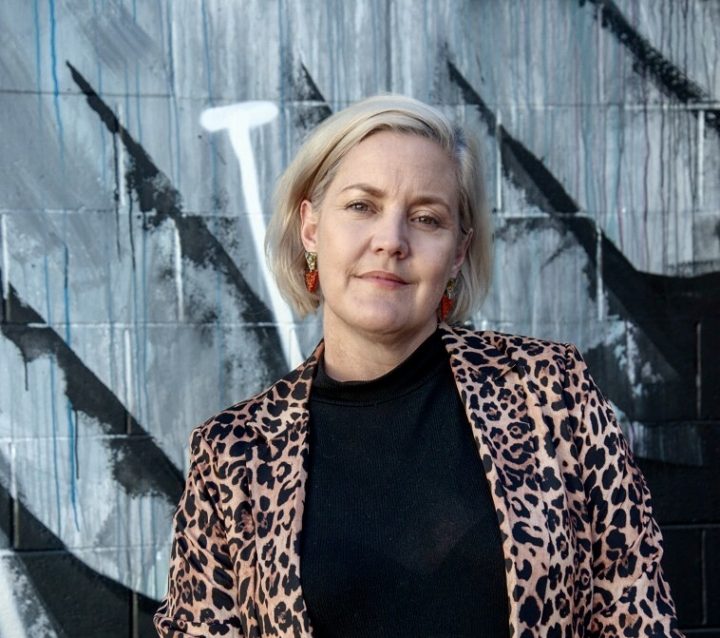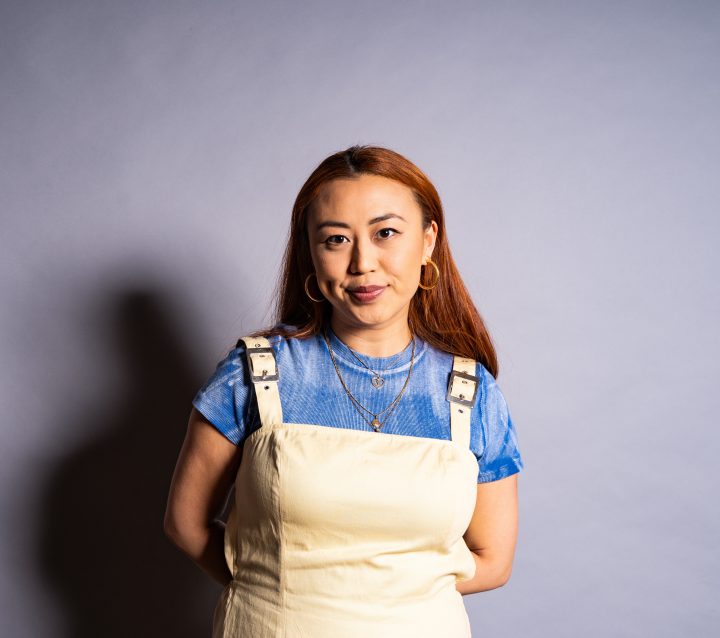
What is your current role or roles within the music industry?
Executive Director, Association of Artist Managers (AAM)
Co-founder and Curator, Rock and Roll Writers Festival
Curatorial Advisor (Music) for the Museum of Brisbane’s “High Rotation: 30 Years of Brisbane Music” exhibition opening in late-August.
As a facilitator I have some work in the pipeline with Music Victoria, Splendour in the Grass and the Woodford Folk Festival.
As a board member I have governance oversight of the Qld Performing Arts Centre and Nightlife Music. I am on a number of advisory groups for various organisations and institutions.
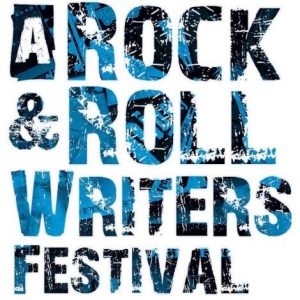
Describe a normal day in the life of Leanne de Souza.
My routine is more about the flow of the week, month and year.
A day COULD include: 2-3 hours of email and desk work; 1-2 scheduled 30-60-minute phone/skype calls; 1-2 scheduled meetings out of the office; 30-60 minutes in a coffee shop or park thinking about ideas, solutions or strategies for a project; a morning yoga class or walk; a lecture or tutorial on campus at the Uni of Qld; academic reading, research and/or writing.
I try and limit mobile based social media to 2 hours a day (I lock myself out after that!) and it invariably involves cleaning the kitchen at least once, a load of never-ending laundry and family dinners a few times a week to keep the wheels of domestic life turning too!
How did you get your start in the music industry – what is your story of how you got to where you are today?
After working in a Myer “Record Bar” for a few years I started my first business as a booking agent in Brisbane in 1992. I was 21 and technically insolvent at the time! I was living in a share house community with a bunch of musicians that never seemed to get paid or organised. I started booking all my friends and got my hustle on to get them work in pubs, clubs, cafes etc.
After 3 years of living on $50-$100 a week and free drinks, an “impresario” came to Brisbane from the UK. Six of us worked alongside him to build something ‘bigger’ for the industry in Brisbane. In the course of a summer $180k of money disappeared. Massive financial damage was done to the fledgling local Brisbane community.
I was gifted a desk and a brick mobile phone by a local theatre and comedy agency and set about booking the acts I represented to make amends. Whist there, I fell in love with one band and became a manager – working from home and touring all over the country, Europe and the UK. I am happy to never sit in a hi-ace towing a trailer straight through from Melbourne to Brisbane ever again after doing it 6 months pregnant.
I was a ‘front-line’ manager from 1996 – 2015 with an eclectic roster and juggled the ‘curve balls’ of life. My husband contracted bacterial meningococcal meningitis in 1998, we had 2 kids and the family business meant having to stay put in Brisbane. I lost my main management client on the eve of the global financial crisis in 2007, which was the beginning of the toughest 2 years of my working life.
In that time, I did whatever I had to do to make ends meet including teaching, mentoring, working in friend’s businesses. I was gifted a ‘proper’ job working for an arts consultant. Sandra Fields believed in my raw ability as a facilitator, planner, strategist and evaluator. It was a lifeline of skills development I will forever be grateful for and it changed my professional outlook.
My family of origin is fiercely connected to social justice and politics in Queensland. Growing up I felt the ‘white guilt’ of Aboriginal and Torres Strait Islander Peoples history in this country. The deep impact and trauma of violence and the genocide imposed by colonisation. In this period, we had the “Apology to the Stolen Generations” and I accepted the challenge from a local Elder to embark more seriously on listening and learning to be a better ally at home and in my community.
All these ‘threads’ of who I am, and what I stand for, came together a few years ago when my own mental health unravelled and I took time out from the business of music. I re-evaluated what I really wanted to do and how. I decided to invest my time and money in managing myself for the first time ever. My goal was to ‘steer a course to 50’ that was congruent with my values and only accepted work offers that I felt could make a meaningful impact on the cultural life of Australia.
That led me to now!
Although, I most love being a mature age student, as an undergraduate at the University of Queensland. I have 6 courses left to complete my BA with a major in Aboriginal and Torres Strait Islander Studies and minors in Gender and Digital Culture. I am aiming to graduate with honours before my 50th, fingers crossed!
You live in QLD, what is the current musical landscape like there at the moment?
Queensland creatives never ceases to amaze me – the new voices, scenes and collaborations are exceptional. My personal belief is the industry and business acumen has consolidated into the hands of too few and needs a bigger base.
So often, investment in music and arts in Queensland focuses on the ‘art making’, shiny events and tourism rather than a strategic approach to building better business infrastructure for the arts. The art must always be central to policy – however, artists thrive when investment is made in the people and infrastructure that assist them to reaching their potential, local and global markets and audiences. We need more support for those that support the artists in Queensland – there is a new Arts Queensland ‘roadmap’being enacted this year, so time will tell what that means in practical terms for the music industry.
Have you got any advice for people wanting to start a career in the music industry?
- Start a project – any project.
- Volunteer at a festival, community radio or a local not for profit organisation.
- Collaborate, collaborate, collaborate.
- Don’t believe any one person, organisation or your perception of who/where the ‘power’ is the key to your success – YOU are.
- Think of the long term, keep your integrity and only do what feels truly ‘the right thing to do’.
Do you feel that higher education is necessary to establish a career within the music industry?
No. I believe a love of learning is vital though. Some of the smartest people I know are artist managers without degrees. But they read, do short courses, close their skills gaps and are naturally curious.
I chose to do a degree AFTER a career in the music industry as I wanted to stretch myself intellectually and contextualise what I already knew to ‘take it up a notch’ for the future of my career.
What is the best life advice you’ve ever received?
Take deep breaths, feel your feet on the earth and pay attention to the natural sounds around you. Listen. (an Aboriginal community leader)
Always remember, the hands you shake on the way up are the same hands you shake on the way down. (a Brisbane publican)
What issues do you feel the Australian music industry is currently facing and how do you think these could be changed and improved?
First Nations First
The music industry must put First Nations peoples first – in investment, engagement, process, decisions and governance. So much work has been done in visual and performing arts in this area but music is significantly behind.
First nations songwriters and musicians are powerful voices for truth telling and healing. The music industry needs to empower these voices to participate with the advocacy for a National Indigenous Cultural Authority. Personally, I am talking with organisations and First Nations people about how we can galvanise and fund a process that develops “Guiding Principles for Best Practice in the Representation of First Nations Artists” . Non-Indigenous people and companies (managers, agents, labels, publishers, peak bodies and collection societies) working with First Nations people need to listen, be held to account and work cohesively across the sector.
Diversity in Leadership
“Music is a hierarchical industry built on relationships”, wrote Katie Cunningham in Crikey. That is true and hierarchies lack transparency, can be toxic and put the power in the hands of a few and erect barriers to change.
I would love to see that sentiment flipped on its head and acceleration of women and diverse people into leadership positions. Women in power are rising and bringing real change via healthy relationships, respectful communications, collaborative and inclusive practices. If we put more energy in to that we could have a music industry that feels and functions very differently.
Artist Managers
Artist Managers in Australia have NEVER received the recognition, support and investment they deserve. Managers are highly educated, experienced and yet suffer a 48% wage gap to their peers in other creative industries. There are high levels of burn out, mental health challenges, economic stress and low levels of long-term retention outside of a few at the ‘top end of town’.
The music industry needs to accept that artist managers, with their artists, are now the CEO’s of the music business. The contemporary global music industry no longer functions exclusively through the gatekeepers and juggernauts of the major labels, publishers, promoters and collection societies. They are service providers and suppliers.
Managers, with their artists, work in an agile, highly complex, sophisticated global market – undertaking macro and micro tasks of labels, publishers, marketers, counsellors and strategists. Investment and support for building better managers returns economic, cultural growth and resilience for the artist’s long-term business and creative sustainability. It is the smartest thing the industry could do. Do it now.
Have you had to overcome any challenges or adversity in your career, and if so how did you approach them?
Money.
Being ripped off and humiliated so publicly at 25 years old. I had to keep going and work even harder. I made financial amends and participated for free as much as possible in my local music community. I have only recently released the obligation to make it right and let the pain of that experience go. I got counselling.
Losing my primary client on the eve of the GFC and turning 40, with a young family and mortgage and having to go back to square one was hard. I got counselling.
Health.
I just powered through for two decades on adrenalin, substances and sheer willpower to only realised in the last few years just how much anxiety has wreaked havoc with my mind and body.
I got counselling. I actively pursue self-care practices, am much kinder to myself, am calmer and have stronger personal and professional boundaries.
Time.
Never enough. In August 2004 we took the young family (3 and 1-year old) to Italy for a month. I was teaching and managing 3 artists and the internet was not was it is now. In January I started panicking. I started the tasks that would be freaking me out on the eve of leaving (passports etc). I did every thing backwards and the night before I was totally organised and could drink champagne with the house sitter. I call it my “reverse timeline” and use it every day/month/year since!
How do you unwind from all of your responsibilities?
I don’t watch a lot of television. I will just sit and stare at the beautiful view I am privileged to have living in Bardon, Brisbane. I have a library at home and read A LOT. I walk. I carve out times to laugh with my friends. Having teenagers makes you pretty quickly forget all the other responsibilities as they always come first when they need me.
What is the most rewarding experience that you’ve been a part of during your career? (I’m sure there’s a few – feel free to include more than one!)
“Rewarding” – it is very hard to isolate that from 30 years of working life there are so many. I truly find every day rewarding, even the hard ones.
The days I DON’T find rewarding, are when I have done something not true to who I am or have gone against my gut instinct, or been convinced to do something that did not feel was ‘right’ to me.
What has been your proudest achievement so far?
I don’t really measure my life by ‘achievements’. If I can fall asleep quickly at night, knowing my family and friends are happy and safe, I am not in a state of panic/anxiety and be conscious of my privilege and purpose I am grateful.
Who are your role models in the industry whether they be international/Australia?
I love that you have asked “role models’ rather than ‘mentors. There are many but here are a few, for different reasons:
Rhoda Roberts & Lee-ann Buckskin – as artists and female Aboriginal leaders they have led the way for non-Indigenous folks as to how we can centre First Nations arts, culture and ways of being in to our thinking, work and partnerships. Their writings, interviews and personal conversations have challenged my perspectives and deepened my understanding.
Rick Chazan, Greg Carey & Tom Harris – the Co-Chairs and Treasurer of the AAM. All three exemplify the best traits of gentlemen working in the music industry. Smart, ethical, community-minded and generous. In my 2.5 years working them I have not been ‘mansplained’ at once and we laugh often. I know they have my back but they also hold me to account.
Kirsty Rivers, Helen Marcou, Jane Slingo and Emily Collins – as I moved from frontline artist management to a community/sector development role with the AAM these four women have been my guiding lights. We share common values and ambition for inclusion, diversity and safety in the music industry. They are smart, collaborative and work with the upmost integrity. Without them I would feel very lonely in the music industry some days that’s for sure.
What does 2019 hold for you? Any exciting things that you can tell us about?
My intention is that it holds some SPACE.
Space on the inside to breath and think deeply. Space on the outside in my schedule to allow new things to bubble up and in my house – I have moved my yoga/meditation space out of the office finally 😊
I have won a great piece of consulting work to research and document the social and cultural history of 30 years of the Riverstage in Brisbane.
I accepted an invitation to attend a new ‘deconstructed’ conference model this May in Byron Bay. Somewhat ironically called S P A C E. An an intersection of thinkers will share ideas and challenge perspectives on how the future of Australia could look.
View the video here.
Top 3 artist you’re currently listening to?
I have made a list of my 10 current songs that I am loving.
Sure, listen to the first three only if you wish. Shellie Morris, Thelma Plum and JEFFE . . .but feel free to listen on for Tara Simmons, Woodes, Mallrat, Stella Donnelly, Sharon Van Etten, Ainslie Wills, Vera Blue and Deborah Conway.
What’s your go-to karaoke song?
I did Karaoke once in 1988 and butchered “I Will Survive” and have never done it again. Scarred for life.
More Interviews

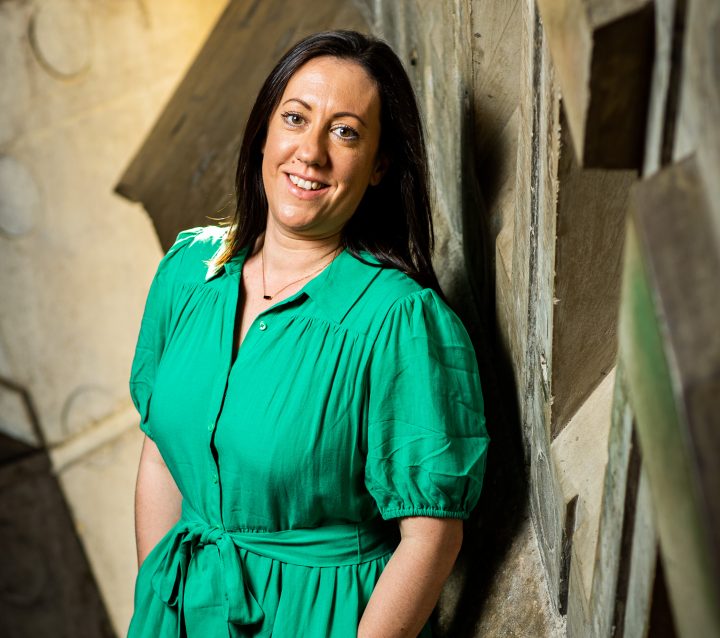
Phillippa Martin Reiter
Festival Producer // Vivid LIVE at Sydney Opera House // Contemporary Music
Phillippa Martin Reiter
Festival Producer // Vivid LIVE at Sydney Opera House // Contemporary Music
